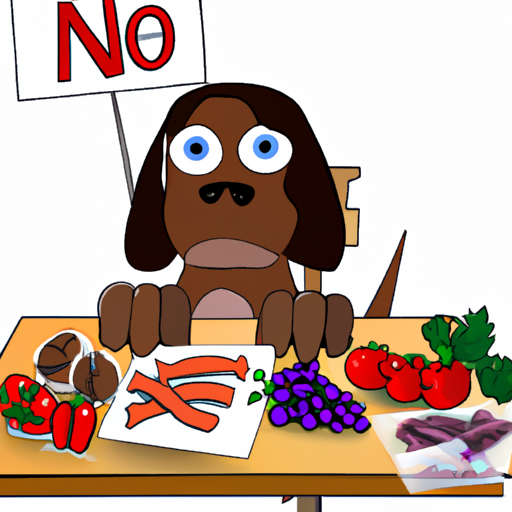As a caregiver, your instincts always direct you towards ensuring the wellbeing of those you look after. This includes the furry members of your family too, doesn’t it? Dogs, just like humans, have a penchant for food. But not all human foods are safe for our canine companions. Let’s delve into the mystery of what human foods can dogs not eat.
1. Chocolate and Caffeine: A Sweet Poison
Dogs and chocolate are two things that should never mix. Chocolate, coffee, tea, and other caffeine-containing items are incredibly toxic for dogs due to a compound called theobromine.
- Dark chocolate and unsweetened baking chocolate contain high levels of theobromine, making them the most dangerous.
- Symptoms of chocolate poisoning in dogs range from vomiting and diarrhea to seizures and, in severe cases, death.
| Type of Chocolate | Level of Theobromine |
|---|---|
| Milk Chocolate | 44-58mg/oz |
| Dark Chocolate | 130-450mg/oz |
| Baking Chocolate | 393-450mg/oz |
2. Grapes and Raisins: Small but Deadly
Despite their small size, grapes and raisins can cause serious harm to your dog. They can cause acute kidney failure, even in small amounts.
- It’s not clear why grapes and raisins are toxic to dogs.
- Symptoms include vomiting, diarrhea, and lethargy, leading to dehydration and decreased appetite.
3. Onions and Garlic: Hidden Dangers in the Kitchen
Onions, garlic, and other foods in the Allium family can damage your dog’s red blood cells, leading to anemia.
- This includes all forms of these foods, both raw and cooked.
- Symptoms can take a few days to appear and include weakness, reluctance to move, and orange to dark red urine.
4. Alcohol: Not a Party for Pups
Alcohol, even in small amounts, can cause significant damage to dogs. Their bodies process alcohol differently than ours, making it much more toxic.
- Alcohol poisoning in dogs can lead to vomiting, loss of coordination, and in severe cases, coma or death.
5. Xylitol: A Sugar Substitute with Bitter Consequences
Xylitol, a common sugar substitute found in many human foods like candy, gum, and some baked goods, is highly toxic to dogs.
- Consumption of xylitol can lead to a rapid decrease in a dog’s blood sugar level, causing disorientation and seizures.
FAQ
Q: Why is chocolate toxic to dogs?
A: Chocolate contains a compound called theobromine, which dogs’ bodies cannot effectively metabolize.
Q: Are all types of onions and garlic harmful to dogs?
A: Yes, all forms, whether raw, cooked, or powdered, are harmful to dogs.
Q: Can dogs have any amount of alcohol?
A: No, alcohol is toxic to dogs even in very small amounts.
Q: What should I do if my dog eats something it shouldn’t?
A: If your dog consumes any of these toxic foods, contact your vet immediately.
Remember, as a caregiver, your knowledge and vigilance can protect your furry friend from these hidden dangers. Always double-check before sharing your snack with your beloved pet.



